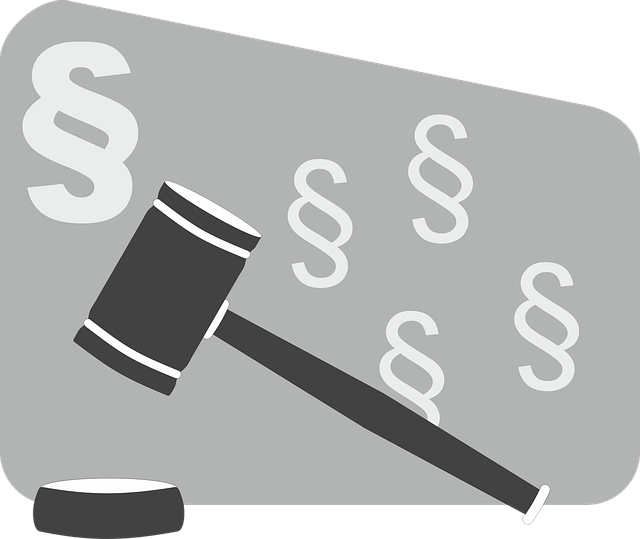Criminal defense attorneys specializing in Financial Regulatory Compliance Litigation Strategies are key to navigating complex financial and criminal law intersections. They master regulatory rules, challenge prosecution evidence, and employ strategic tactics to achieve favorable outcomes for clients facing fraud, money laundering, and other white-collar charges, ensuring justice and rights protection.
“Criminal defense attorneys play a pivotal role in protecting individuals’ rights within the legal system. This article delves into the multifaceted world of these legal professionals, exploring their crucial responsibilities and strategies employed in complex criminal cases. From understanding financial regulatory compliance from a legal perspective to mastering litigation strategies, this guide highlights effective tactics for a robust defense. By navigating intricate laws and evidence rules, criminal defense attorneys ensure fair representation, making them indispensable in the pursuit of justice.”
- Understanding Criminal Defense Attorneys' Role
- Financial Regulatory Compliance: A Legal Perspective
- Strategies in Litigation for Strong Defense
- Navigating Complex Laws and Evidence Rules
- Case Preparation and Trial Tactics Proven Effective
Understanding Criminal Defense Attorneys' Role
Criminal Defense Attorneys play a pivotal role in safeguarding individuals’ rights within the legal system. Their primary responsibility is to provide zealous representation for those accused of criminal offenses, ensuring their clients receive fair treatment and due process. These attorneys are experts in navigating complex legal landscapes, particularly in areas like Financial Regulatory Compliance, where they guide their clients through intricate rules and regulations.
Through adept Litigation Strategies, Criminal Defense Attorneys challenge the prosecution’s case, scrutinizing evidence and testimony to uncover weaknesses. Their goal is not merely to defend but to achieve the best possible outcome for his clients, whether it’s acquittal, reduced charges, or a negotiated plea bargain. An unprecedented track record of success speaks to their prowess in understanding the nuances of criminal law and advocating for their clients’ interests.
Financial Regulatory Compliance: A Legal Perspective
In the realm of general criminal defense, Financial Regulatory Compliance Litigation Strategies have emerged as a critical aspect for attorneys navigating complex legal landscapes. These strategies involve a deep understanding of financial regulations and their intersection with criminal law, which can significantly impact outcomes in jury trials. Skilled criminal defense attorneys must possess expertise in interpreting and applying these rules to craft effective defenses for their clients. By exploring creative litigation approaches, lawyers can challenge the prosecution’s case, ultimately working towards winning challenging defense verdicts.
Understanding financial regulatory compliance allows attorneys to uncover potential weaknesses in the prosecution’s argument, especially when dealing with white-collar crime cases. This strategic approach not only strengthens the defense but also demonstrates a comprehensive grasp of both criminal and financial laws, which can be pivotal in swaying judges’ and juries’ perceptions during high-stakes trials.
Strategies in Litigation for Strong Defense
In the realm of criminal defense, attorneys must employ strategic litigation techniques to secure the best possible outcomes for their clients. One key area of focus is Financial Regulatory Compliance Litigation Strategies. These strategies involve a deep understanding of financial regulations and their intricate details, which can be crucial in defending against charges related to fraud, money laundering, or other financial crimes. By navigating these complex legal landscapes, attorneys can help their clients avoid indictment and craft robust defenses.
Effective defense strategies include thorough investigation, expert witness testimony, and meticulous documentation. Attorneys must delve into the specifics of their clients’ financial activities, ensuring compliance with relevant regulations across the country. This involves a meticulous analysis of transaction records, internal controls, and regulatory requirements. By presenting a compelling case based on these strategic approaches, criminal defense attorneys can significantly enhance their chances of success for his clients.
Navigating Complex Laws and Evidence Rules
Criminal defense attorneys play a crucial role in navigating complex laws and evidence rules, which are essential aspects of financial regulatory compliance litigation strategies. They guide their corporate and individual clients through all stages of the investigative and enforcement process, ensuring they understand their rights and obligations. With intricate knowledge of legal intricacies, these attorneys can often secure the complete dismissal of all charges, protecting their clients from potential penalties and reputational damage.
By employing strategic litigation approaches, defense lawyers can challenge the admissibility of evidence, question witness testimonies, and exploit procedural gaps to weaken the prosecution’s case. Their expertise in financial regulations enables them to identify legal loopholes and leverage them in favor of their clients. Through these tactics, criminal defense attorneys offer a robust defense, aiming for favorable outcomes, including acquittal or reduced sentences.
Case Preparation and Trial Tactics Proven Effective
Criminal defense attorneys who specialize in Financial Regulatory Compliance Litigation Strategies employ a range of proven tactics to prepare for and manage complex cases. These strategies encompass meticulous research, analysis of regulatory frameworks, and an in-depth understanding of case law relevant to financial crimes. By leveraging these approaches, defense teams can construct robust defenses tailored to each client’s unique circumstances, encompassing both corporate and individual clients across the country.
Effective case preparation often involves examining evidence with a fine-toothed comb, identifying potential gaps or inconsistencies in the prosecution’s case, and crafting persuasive legal arguments. During trial, adept attorneys utilize tactical maneuvers such as cross-examination to challenge witness testimonies and expose weaknesses in the prosecution’s narrative. This comprehensive approach has led to numerous successful outcomes, including the complete dismissal of all charges in cases where the evidence was circumstantial or based on flawed interpretations of financial data.
Criminal defense attorneys play a pivotal role in safeguarding individuals’ rights within the legal system. By understanding their multifaceted responsibilities, from interpreting complex laws to employing effective litigation strategies, we can appreciate the intricate navigation of the justice process. With a focus on financial regulatory compliance and robust defense tactics, these professionals ensure fairness and protect clients’ interests. Through meticulous case preparation and strategic trial tactics, they offer a vital service, making the legal landscape more accessible and just for all.






